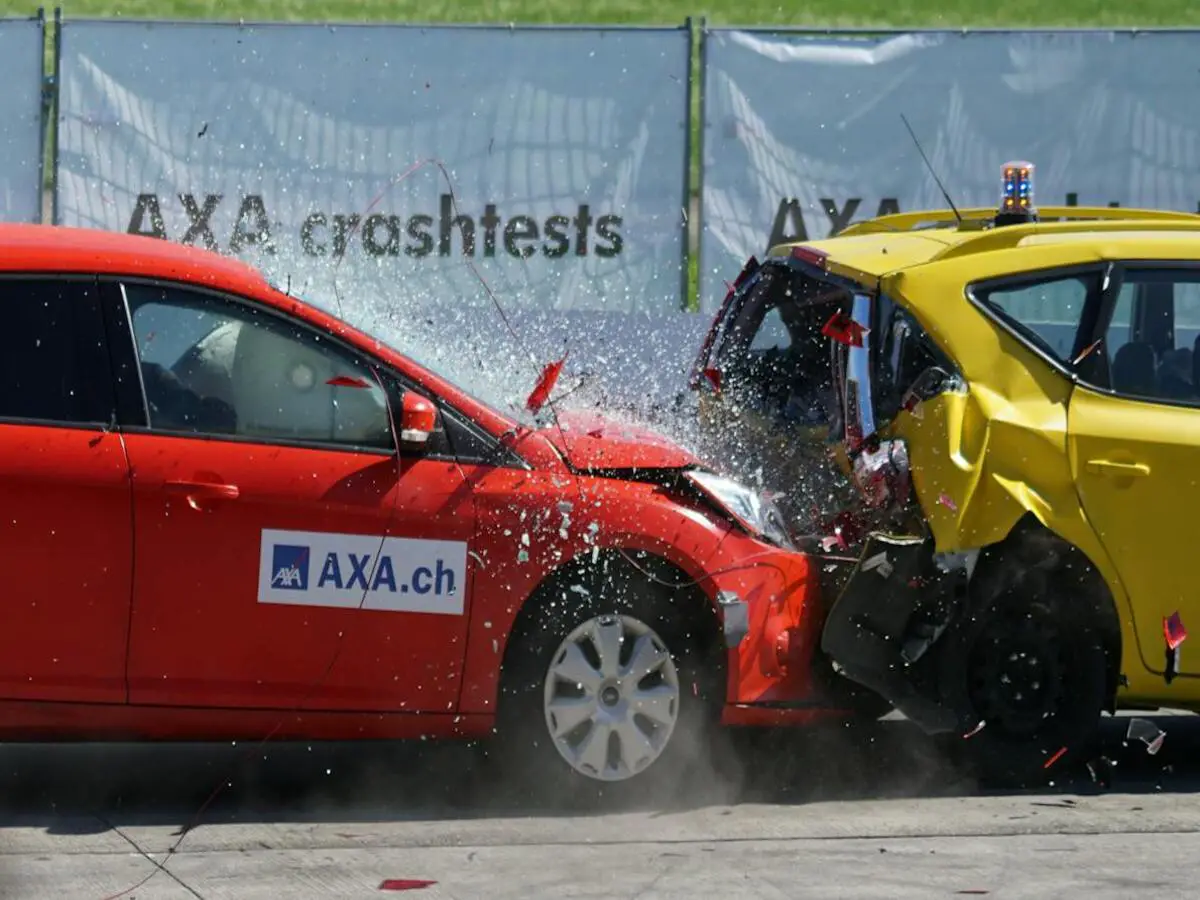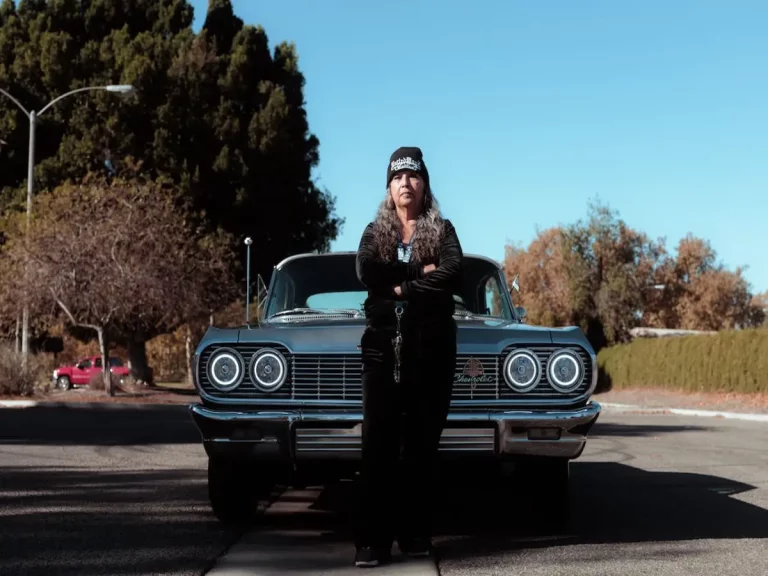How to File a Car Insurance Claim in California
If an accident happens and you need to file a car insurance claim in California, just contact your insurers right away. Use the number on your insurance card to let them know about the claim.
You can also start a claim online through the insurer’s website or mobile app for a quick and convenient process.
If both parties in an accident have insurance, it’s best for each person to reach out to their own insurance company to start the claims process.
Keep in mind that California operates on a “fault” system for car insurance. So, whoever is found at fault in an accident will be held responsible for the damages caused.
Filing a claim with your own insurance might hike up your rates, and there’s usually a deductible to pay before your insurer covers the costs. Just something to be aware of.
Considering these factors, reaching out to an experienced car accident lawyer in California before filing a claim with your insurance is often a smart move. They can help figure out the real fault, negotiate with the insurance companies, and aim for the best possible outcome on your behalf.
Who should I call after a car accident in California?
California sees quite a lot of car accidents, which is a bit unfortunate. I mean, with over 39 million people in the state, it’s not shocking that they have more than 250,000 car accidents every year. And sadly, more than 3,700 of these end up being fatal.
The National Highway Traffic Safety Administration (NHTSA) says California’s got one of the highest accident rates in the whole country. If you find yourself in a car accident in California, it’s crucial to get in touch with the following parties:
- First responders: If you’ve been in a car accident and need urgent medical help, your priority is to reach out to first responders. They’re the pros who can give you the necessary care and, if needed, get you to the hospital.
- Local law enforcement: In case the car accident is more than a minor bump, make sure to contact local law enforcement. They’ll investigate the scene and file a report, and this documentation can come in handy for any potential legal proceedings down the road.
- Your auto insurer: If you’re insured, the next step is to reach out to your auto insurer. They’ll guide you through the claim process and assist in getting your vehicle fixed up.
- The other party’s insurer: If the accident isn’t your fault and the other party is insured, reach out to their insurer. They’re on the hook for covering the damages from the accident.
What if the accident was my fault?
If you are involved in a car crash in California, just contact your insurance company, no matter whose fault it is. Certain policies like Med Pay and California collision insurance cover you, regardless of who is at fault.
Plus, there’s a chance the other party shares some or all of the blame for the accident. Thanks to California’s “comparative negligence/shared fault” law, you can still get compensation, even if you played a part in the accident.
Lastly, if the accident is on you, the other party might go after your insurance. Letting your insurer know ensures that your policy steps up to cover any claims that come your way.
Should I notify the California DMV after a car accident?
If you are involved in a car accident, you might be wondering if you should report it to the DMV. Well, it really depends on how serious the accident was and the extent of the damage.
In California, you’re obligated by law to let the DMV know within 10 days if someone got hurt or killed, or if the property damage from the accident hits over $1,000.
Notifying the DMV doesn’t mean you’re instantly filing for damages. If the responsible party or their insurance doesn’t come through, you might have to consider legal action to ensure you get the compensation you’re entitled to.
Act swiftly after the accident. The sooner you reach out to the DMV or an experienced insurance attorney in California, the higher the likelihood of achieving the outcome you’re hoping for.
How long do I recover damages from car accident injuries?
In California, you typically have a two-year window to sue for injuries from a car accident. But keep in mind that this is about suing the other party or their insurer, not the timeframe for reporting the accident to the DMV and your insurer.
Insurance companies usually expect prompt notification after an accident for any claims. Waiting too long might jeopardize your chances of recovering damages. Typically, the auto accident settlement timeline spans one to three years from the accident date.
Hence, acting swiftly after a car accident is crucial to safeguarding your rights and increasing the likelihood of maximizing your damage recovery.
Steps to file a car insurance claim in California
Follow these steps to file a car insurance claim in California:
- Contact Emergency Services: Call 911 if there are injuries; report the incident to the police.
- Exchange Information: Collect names, addresses, phone numbers, and insurance details from other involved parties.
- Document the Scene: Take photos of the accident, vehicle damage, and relevant road signs.
- File a Police Report: If police didn’t come, file a report at the station or online.
- Notify Insurance Company: Call your insurer as soon as possible, provide accident details, and get a claim number.
- Cooperate with Adjuster: Work with your insurance adjuster, share information, and answer questions.
- Get Repair Estimates: Obtain repair quotes from reliable auto shops; share them with your adjuster.
- Receive a Claim Number: Your insurer will assign a claim number; keep it handy.
- Review Settlement Offer: Evaluate and negotiate, if needed, the settlement offer from your insurer.
- Authorize Repairs: Once settled, give the go-ahead to the chosen repair shop.
- Follow Up: Stay in contact with your insurer and the repair shop for progress updates.
What happens if I don’t have auto insurance?
If you lack insurance but weren’t responsible for the accident, you can file a claim with the other party’s insurer. Remember, though, that the other party’s insurance company doesn’t advocate for you – they’re looking out for their policyholder’s interests.
Your insurer is bound by good faith in handling your claim, but the other party’s insurer doesn’t have the same obligation and might choose to ignore you. That’s why it’s advisable to reach out to an experienced California accident lawyer before directly filing a claim against the other party’s insurance.
Engaging an experienced California accident lawyer can mean having a professional negotiator in your corner, fighting for the compensation you deserve from the other party’s insurance. It’s wise to make contacting a lawyer your initial move after an accident, regardless of fault.
Can I repair my car anywhere after an accident in California?
Choosing between an in-network or out-of-network repair shop after a car accident? Let’s weigh the pros and cons of each option.
Picking an in-network repair shop often means benefiting from pre-negotiated rates with insurers, potentially saving you money on repairs. Plus, if they discover more damage during the fix, getting extra costs approved by the insurer may be easier.
Opting for an out-of-network repair shop might mean less negotiating power on pricing, and the insurer might not cover the full cost of repairs in this case.
The best option depends on your situation. If cost is a significant factor, using an in-network repair shop could be a more suitable choice.
If your priority is top-notch repairs, an out-of-network shop might be worth exploring. The key is to do your research and choose the option that aligns best with your needs and preferences.
Can I have my car repaired while I’m still recovering from injuries?
In the aftermath of a car accident, the least desirable concern is handling repair and medical expenses. Fortunately, many insurance companies are generally willing to cover both vehicle damages and any physical injuries you might have suffered.
Nevertheless, it’s crucial to carefully review any documents you’re asked to sign to prevent compromising your rights.
If you’ve sustained injuries in a car accident, reach out to a seasoned personal injury attorney. They can assist you in navigating the legal process and securing the compensation you rightfully deserve.
Is it necessary to hire a lawyer to file a car accident claim in California?
While insurance adjusters are trained to aim for lower settlements, that doesn’t mean you can’t negotiate a fair deal on your own. Being informed and assertive can go a long way toward securing the settlement you deserve.
If you’re confident and have a strong case, negotiating on your own could lead to a good settlement. Yet, for complex cases or if the insurance company is being challenging, enlisting the expertise of a California personal injury attorney might be worthwhile to ensure you receive the compensation you deserve.
Settling a car insurance claim in California
Being assigned to an adjuster
If you’ve had a car crash, the insurance company will send someone called an adjuster to check things out. Their job is basically gathering information to figure out who’s to blame for the accident.
Usually, the insurance adjuster will reach out to you within 15 days after receiving your car insurance claim. They’ll want to hear your side of the story (you will write a statement) and might need some extra proof. Once they’ve got all the information, they’ll decide who’s at fault and the kind of damages involved.
Should I give the adjuster a recorded statement?
Watch your words when talking to an insurance adjuster post-accident. You don’t have to spill everything, and keep in mind that whatever you say could be used against your claim—they might use it to deny or stall the whole process. It is one of claim adjuster secret tactics to reduce your insurance claims.
Stick to the rea facts about the accident; there is no need for extra flair. Don’t say you’re all good or rush to settle. If they ask about your well-being, keep it real and say it’s too early to be sure.
Should I agree to an independent medical test?
If the adjuster pushes for an independent medical examination (IME), politely let them know you’ll sign a release for your treatment notes. IMEs aren’t as unbiased as they sound, so keep your medical info on the down-low. Let the evidence and, if you’ve got one, your attorney do the work.
Which evidence does the adjuster need from you?
The insurer will gather proof to back up your claim, such as (but not limited to):
- Your auto insurance claim forms
- Your recorded statement (if you provide it)
- The statement(s) of the other party and any witnesses
- An inspection of your car
- Pictures of the car accident scene
- Damage reports from car repair shops
- Medical bills
- Medical reports
- Evidence for lost wages or earning capacity claims.
- Anything relevant, even your social media posts, might come into play.
This evidence is the key to helping the insurer decide whether to give the green light to your claim.
How long before I get my money after a car insurance claim?
If you’ve been in a crash and filed a claim, your insurance has to kick off a genuine investigation within 15 days. There is no need to put it in writing.
Once you’ve laid out your case, the insurer has to decide whether to accept or deny your claim. They’ve got 40 days to do this after the proof is on the table, showing you’re entitled to recovery and how much you should get.
For straightforward claims with no-fault debate, you might wrap things up in just a few days. But if there are faults, especially if there are serious injuries, buckle up; it could take longer. In the worst cases, proving your case might stretch out over many months.
If your insurance company is giving you the silent treatment 15 days post-accident or hasn’t made a call on your claim in 40 days, it’s time to consider filing a complaint. Reach out to an experienced insurance attorney in California to talk about your next moves.
The initial settlement offer
To handle a lowball offer from the insurance company, consider these tips:
- Don’t hesitate to negotiate: The initial offer might not be the best, so don’t hesitate to come back with a counter-offer.
- Stay courteous yet assertive: Keep a professional demeanor when dealing with the insurance adjuster.
- Know your insurance policy limits: it’s a solid foundation to kick off your negotiations.
- Document everything: Document all interactions with the insurance company, whether by phone or email. This record can come in handy if you ever need to escalate the issue or file a complaint.
- Consult with a lawyer if needed: If you sense you’re getting a lowball offer, it might be wise to consult with a California insurance lawyer for guidance.
Facing a lowball offer from the insurance company? Just a reminder: You’re not obligated to accept it. With some persistence and negotiation, you can likely secure a fair settlement.
Should I send a demand letter?
Had a car accident? Wondering about a demand letter to the insurance company? It’s not a must, but it can be beneficial in certain situations.
Just so you know, a demand letter lays out your side of the story, backed by evidence, and asks for a specific amount of compensation.
When you’ve got a California personal injury lawyer on your side, they typically prefer sending a demand letter to the insurance company, either before or after the adjuster makes an offer.
Usually, the adjuster’s first offer is a bit low, and interestingly, the demand letter often pitches a higher amount than what you might initially consider.
The negotiation
The negotiation phase is key in a car insurance claim. Here, either you or your lawyer will present evidence and make the case for a higher payout.
The adjuster aims for a quick resolution, not just to clear their workload but also to minimize the insurance company’s risk in case you later uncover more serious injuries.
Success in negotiations often hinges on maintaining patience while staying persistent.
In rare instances, filing a lawsuit might be necessary for a fair settlement. Keep an eye on the statute of limitations to ensure you don’t miss the window for legal action.
The settlement agreement
Before signing a settlement agreement, be crystal clear on the terms. Once you sign, you forfeit the right to sue for more damages, even if later discoveries reveal more serious injuries or additional car repairs.
If you’re unsure about the agreement, don’t hesitate to ask the insurance adjuster before signing. Once that signature’s on the paper, the settlement is done.
How can I get my money once I’ve resolved my car accident claim in California?
Keep records of all accident-related bills. After settling, you will pay the bills yourself. If you used an in-network repair shop, the insurer typically foots the bill directly to the shop.
After the insurance company gets the original signed settlement agreement, they’ll settle the remaining damages.
A gentle reminder that you might need to pay other parties from the settlement, like doctors or body shops not directly paid by your insurer. Check for any outstanding bills before using your settlement funds!






